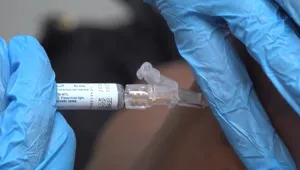Tara O’Toole, MD, MPH is Senior Fellow and Executive Vice President at In-Q-Tel (IQT), a private, non-profit strategic investment firm that links the US Intelligence Community and venture-backed start-up firms on the leading edge of technological innovation. IQT invests in start-up companies that have developed commercially viable products that will deliver novel and disruptive, ready-soon technologies (within 36 months) that could effectively address some of the nation’s most significant problems. Dr. O’Toole is leading a strategic IQT initiative to explore opportunities and risks likely to arise in the next decade as a result of advances in the biological sciences and biotechnologies, with a particular focus on detection of and defense against biological attacks.
From 2009-2013, Dr. O’Toole served as Under Secretary of Science and Technology (S&T) at the Department of Homeland Security, the principal advisor to the Secretary on matters related to science and technology. Before becoming Undersecretary, Dr. O’Toole founded and directed two university-based think tanks devoted to civilian biodefense. She was a professor of Public Health and Director of the Johns Hopkins Center for Civilian Biodefense Studies at the Johns Hopkins Bloomberg School of Public Health, which was the first academic center devoted to biosecurity policy and practices and played a major role in defining the nature and consequences of major biological threats, both natural and deliberate.
From 1994-98, Dr. O’Toole served in President Clinton’s administration as Assistant Secretary for Environment Safety and Health in the Department of Energy after serving for four years s a senior analyst at the Congressional Office of Technology Assessment.
She received her BA from Vassar College, her MD from the George Washington University School of Medicine and an MPH from the Johns Hopkins Bloomberg School of Public Health. She is board certified in internal medicine and occupational and environmental medicine.
Dr. O’Toole is a past Chair of the Board of the Federation of American Scientists, and is a member of the Council on Foreign Relations.



